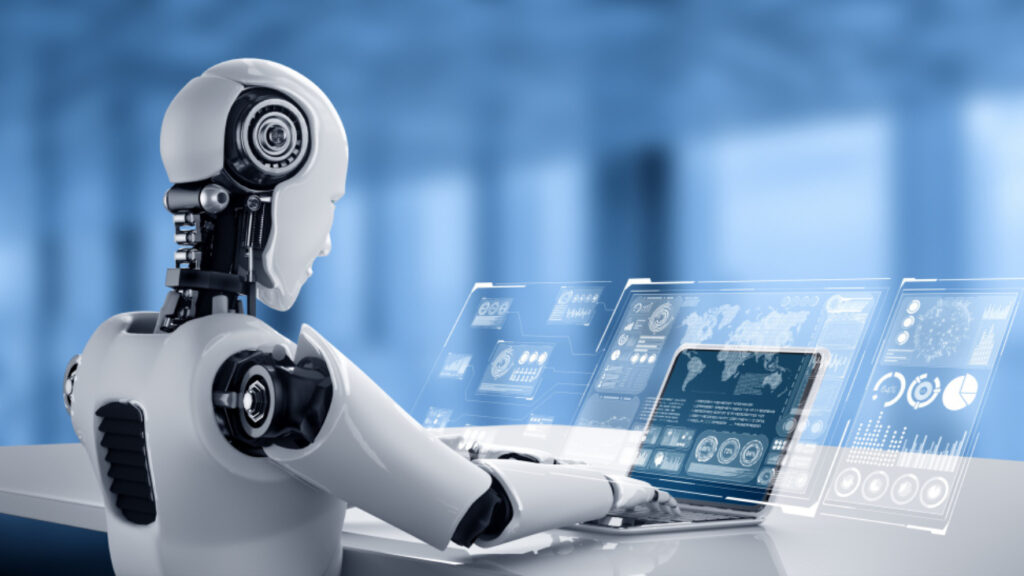The workplace is changing so fast. Robotics, such as RPA, is revolutionizing labor requirements and competencies of future jobs feels Bahaa Al Zubaidi. RPA will shape the jobs of tomorrow and define the workplaces of the future.
By employing RPA, companies can automate such repetitive human tasks as those that follow the rules. Unlike humans, software bots can imitate a variety of human activities and do them quickly and with greater precision. The growth of RPA during the last five years is one example in which organizations pursue productivity efficiency. More complex automation in different industries will see the RPA market increase to 13871.72 million dollars by 2028.
By deploying software bots to handle high-volume, repetitive tasks, RPA enables companies to reduce operational costs and reassign talent to higher-value work. RPA improves efficiency by standardizing processes, speeding up task completion, and minimizing errors. It can be applied across sectors to automate everything from customer service queries and claims processing to HR paperwork and invoice creation. This transforms traditional workflows.
As more processes are automated, the nature of roles and tasks will change. RPA will lead to the elimination of some routine jobs through automation. But it will also create new roles focused on deploying, monitoring, and optimizing bots. Employees can be upskilled and reskilled to complement RPA, manage digital workers, and focus on innovation.
Elevating Work
While some jobs will be reassigned or made redundant by RPA, the technology’s larger impact will be elevating the work employees do. RPA handles repetitive, mundane tasks so knowledge workers across departments can focus on more meaningful, strategic priorities that create greater value for businesses. Finance staff can focus more on data analysis and decision support rather than manual reconciliation. Customer service reps can spend more time resolving complex issues instead of answering routine inquiries. RPA enables people to focus on critical thinking, problem-solving, building relationships, and creativity.
Developing the Workforce of the Future
Companies need to develop staff that are technically proficient with the necessary soft skills so that they can reap the maximum benefits from RPA. Here are some of the key skills and roles needed to thrive in the RPA-powered workplace:
RPA Developer- Builds, tests, deploys, and supports RPA solutions. Such competencies as strong technical and analytical abilities are necessary.
RPA Business Analyst – Identifies feasible processes for automation and re-engineers workflows to achieve efficiency in implementing RPA. Should come with experience in requirement gathering, documenting, and solution designing abilities.
Change Management – Deals with organizational changes initiated by an RPA project. Develops employees’ leadership competencies in training, internal communication, and change adaptation. Collaboration and empathy are essential.
Data Analyst – Identifies the findings from RPA-generated data. Advanced analytics and data modeling skills are needed.
Technology or solution architect – Provides strategic guidance on process automation projects. Maps RPA roadmaps to company objectives. The a need for understanding the latest technology, such as artificial intelligence (AI) and its combination with RPA.
Reskilling employees and adapting organizational structures will be critical. Companies will need to provide ample training in digital skills and nurture talent through the transition. With the right preparation, workers can move into more strategic roles and steer intelligent automation technology to transform operations.
The RPA-Enabled Workplace
RPA is poised to change workplaces dramatically. Some jobs will be lost as this technology proliferates. However, RPA’s larger impact will be to free up employees. This will allow them to focus on delivering value. They can utilize their innate human strengths like creativity, empathy, and complex problem-solving. However, organizations must be proactive in upskilling workers, redesigning processes, and establishing governance models to integrate RPA and prepare for the future of work effectively.
If used wisely, RPA will automate routine tasks, thus letting modern workforces be creative, efficient, and happy. Unlike most technologies, which end up replacing workers, RPA gives power to the employees that they can offer to the best of their abilities. By automating more processes, firms can enjoy unprecedented levels of productivity while employees contribute significantly towards development. This makes possible the development of organizational success and human potential as well. If used properly, this revolutionary technology can help create a brighter future of work for organizations.
Thank you for your interest in Bahaa Al Zubaidi blogs. For more information, please visit www.bahaaalzubaidi.com.
